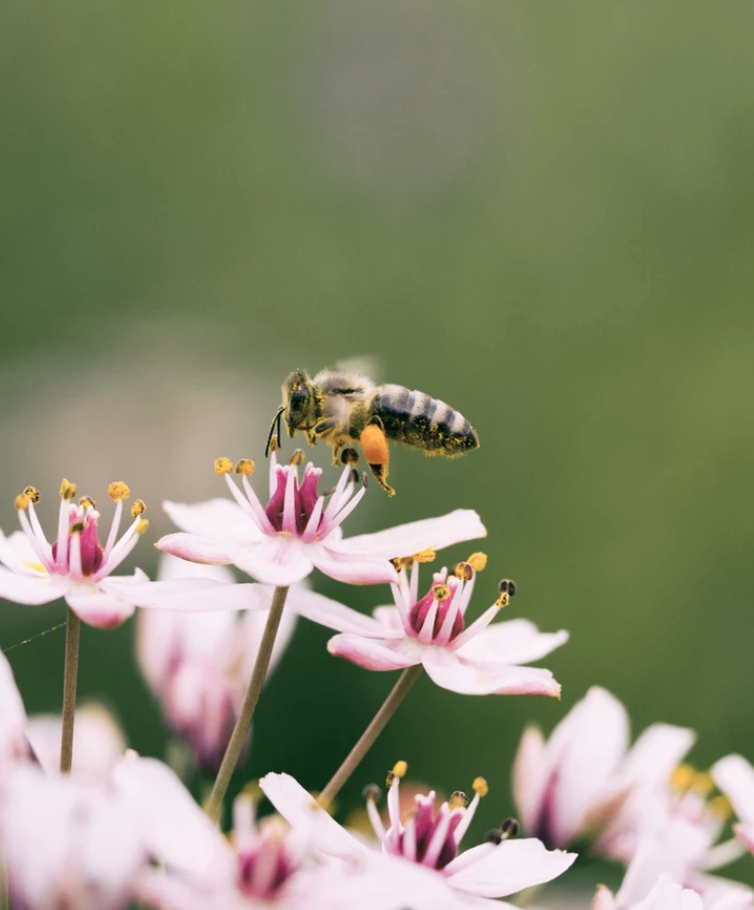
Features
Production
Research
Pollinator gardens do best with a variety of plants
May 26, 2019 By University of Georgia

Pollinator gardens are most beneficial to pollinators when they contain a greater variety of plants, according to research from the University of Georgia.
Researchers in UGA’s Odum School of Ecology conducted a review and meta-analysis of advice for creating pollinator gardens, sifting through a multitude of studies to formulate a more focused approach to establishing healthy habitats for pollinators and determine where more information is needed.
“We wanted to identify gardening practices that pose benefits and drawbacks for pollinators utilizing backyard gardens,” said doctoral candidate Ania Majewska, who conducted the analysis with Georgia Athletic Association Professor of Ecology Sonia Altizer. “Gardening to conserve pollinators is of growing interest to the general public and to researchers. We wanted to get a sense of what has been studied and where the biggest gaps in knowledge exist.”
What works
Pollinators consistently responded positively to gardens with a greater variety of plants, they found. Woody vegetation, such as trees and shrubs, also benefits pollinators by providing additional food and shelter. But pollinators in garden sites separated from other natural habitats responded in a negative way. Pollinator communities benefited when gardens were closer to areas such as pastures that contain pollinators along with foraging and reproductive resources.
Results from their review and meta-analysis, which analyzed nearly 200 records from two dozen published studies, showed a wide variation in the relationship between the characteristics of a garden and insect pollinator populations. Characteristics included the presence of native or exotic plants, the location and size of the garden, and the use of chemicals.
Mixed results
Other factors produced mixed results. For example, native plants are often considered a better choice because exotic plants may not possess the look or smell needed to attract pollinators.
“We predicted that gardens with native plant species would benefit pollinators more, compared to non-native plantings,” said Majewska. “Surprisingly, we didn’t see that effect in our meta-analysis, perhaps because both types of plants provide similar resources.”
Chemical use could have both positive and negative consequences on pollinator survival. For example, slug treatments and fungicides might improve the quality and health of treated plants, allowing for more investment in flowers that would attract more pollinators. But the direct effect of the chemicals on the pollinators could be detrimental.
“We were interested in whether pollinator mortality might be affected by gardens,” said Majewska. “For example, it seems obvious that using pesticides in gardens probably harms bees and butterflies, but it’s also possible that predators and parasites can cluster around gardens and increase pollinator mortality.”
Too few studies on natural enemies (predators and disease) in pollinator gardens, and pollinator use of artificial or natural nest sites, meant that these factors could not be included in the analysis, and was proof that more work needs to be done.
“Anyone who has a patch of lawn or bare dirt can create a pollinator garden,” said Majewska. “And, evidence shows pollinators can benefit from these habitats. Gardeners should take care to plant a variety of species, plant large gardens, add nesting resources, and avoid pesticides near pollinator gardens.”
Because pollinator gardening is growing in popularity, Majewska feels scientists still have much to learn about how gardens compare to natural habitats for wild pollinators.
“With our cities expanding and natural areas shrinking, we need more research on the effects of gardens on pollinator populations so that gardeners can employ the best practices possible,” she said.
The study, “Planting gardens to support insect pollinators,” was supported by a fellowship from the Wormsloe Foundation. It is available online at https://doi.org/10.1111/cobi.13271.
Print this page